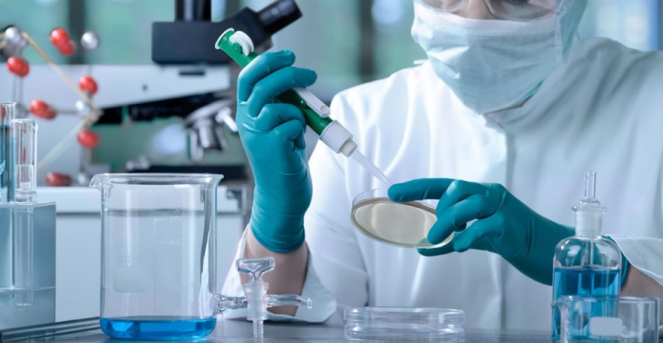A wide variety of green leafy vegetables are introduced. Several common leaf vegetable fertilization techniques are introduced. Fertilizer technology for lettuce There are two kinds of lettuce leaves and stems, the former should be eaten raw, so called lettuce. The latter, also known as lettuce, can be eaten raw, cooked, preserved and dried. Lettuce has a rapid root development in organic-rich, loosely ventilated soils, which facilitates the absorption of water and nutrients. Among the nutrients absorbed by lettuce, nitrogen occupies a special important position. Nitrogen deficiency at any time will inhibit the differentiation of lettuce leaves, reduce the number of leaves, affect the assimilation, and reduce the amount of food harvested, especially in the early stage of growth. The most serious. Phosphorus deficiency at the seedling stage not only results in fewer leaves but also shorter plants and lower yields. Potassium deficiency has little effect on the differentiation of leaves, but it will affect the length of lettuce, so for green leafy vegetables such as lettuce, it is still necessary to pay attention to the combined application of nitrogen, phosphorus and potassium. According to the measurement, for every 1,000 kilograms of lettuce to be formed, it is necessary to absorb 2.08 kg of nitrogen, 0.71 kg of phosphorus pentoxide, and 3.18 kg of potassium oxide from the soil. Lettuce growth period is shorter, should be dominated by basal fertilizer, top dressing timely. Basal manure can be used for decomposing human and animal urine, generally 1500 to 2000 kilograms per acre, applied into the soil. Before transplanting, dilute the diluted manure and urine, and then dry the soil to make the soil fertilizer fully mixed to achieve the purpose of full-layer fertilization. Spinach Fertilization Technology The adaptability of spinach is wide and its cold resistance is strong. Therefore, the cultivation of leaves mainly promotes the development of the assimilation organs to achieve higher yields. It has been determined that the production of 1,000 kilograms of spinach requires the absorption of 2.5 to 3.8 kilograms of nitrogen, 0.9 to 1.1 kilograms of phosphorus pentoxide and 4.6 to 5.3 kilograms of potassium oxide. The application of spinach to fertilization should be based on the principle of applying basic fertilizer and applying fertilizer. Using mature manure or compost as base fertilizer to ensure good root development, especially overwintering spinach, if the base fertilizer is not applied or base fertilizer is insufficient, seedling growth is weak, cold resistance is reduced, the rate of dead seedlings during winter is high, and nutrition after returning green Insufficient growth slows production. After the winter has returned to green, spinach chase a quick-acting nitrogen fertilizer, if the soil available phosphorus, potassium is low, can be combined application. Celery Fertilization Technology Celery contains rich mineral salts, vitamins and volatile special substances. Celery is a shallow root crop and has weak ability to absorb nutrients. Therefore, soil moisture and nutrient requirements are more stringent. Sufficient water and nutrients in the soil can enhance the assimilation of leaves and promote the development of underground root systems, thereby increasing the tillering of the aboveground parts, increasing the leaf area, and increasing the number of leaves. The lack of water and lack of fertilizer during the growth process tends to make the thick-corner tissue thicken, and the thin-walled cell tissue ruptures, causing hollowness and lowering quality. Nitrogen fertilizer is the most important nutrient during the whole growth process. It is the basic condition for ensuring good growth of stems and leaves. Nitrogen deficiency significantly affects leaf differentiation. Phosphorus is indispensable, especially the phosphorus deficiency at the seedling stage, but the phosphorus is too high, which makes the leaves slender, the fibers increase, and the quality decreases. Potassium is extremely important for the growth of celery. Potassium not only has a role in nutrient transportation, but also makes the petiole stout and full, which is beneficial to improving quality and increasing yield. For each 1,000 kilograms of celery, 2 kilograms of nitrogen, 0.93 kilograms of phosphorus pentoxide, and 3.88 kilograms of potassium oxide are needed. The growth period of celery is relatively long, so base fertilizer should be applied before planting. Basal manure should be used between 2,000 and 2500 kg of decomposed pig manure, and then shattered and applied to the fields, and then ploughed into the soil. In the soil surface, 1,000 to 2,000 kilograms of human waste will be applied to the soil. Increasing the application of 10 to 15 kg of urea and potassium chloride at the seedling stage will allow celery to obtain sufficient nitrogen and potassium nutrition.
Active Pharmaceutical Ingredient (API)
We are a manufacturer and supplier of raw materials, intermediates for pharmaceuticals, as well as Active Pharmaceutical Ingredient (API). Our focus is on providing customers with high quality, fair priced products, coupled with our broad range of technical know-hows on fundamentals, vast industrial experience on applications, professional expertise on health and safety, and efficient logistics on customer services. We have established good market for our intermediates in India, Korea and EU. Besides of their intermediates, we can also synthetize the API directly. We also have some API by fermentation, Polymyxin B Sulfate is one of them and we are developing more APIs as well.
Our production is based on GMP standard workshop, according to international Pharmacopoeia standard, making sure your experience with Sunshine Biotech is always enriching, satisfying and fulfilling.
Active Pharmaceutical Ingredient (API) Active Pharmaceutical Ingredient,Polymyxin Sulfate,Ziprasidone Hcl,Polymyxin Sulphate Nanjing Sunshine Biotech Co., Ltd , http://www.sunshine-bio.com